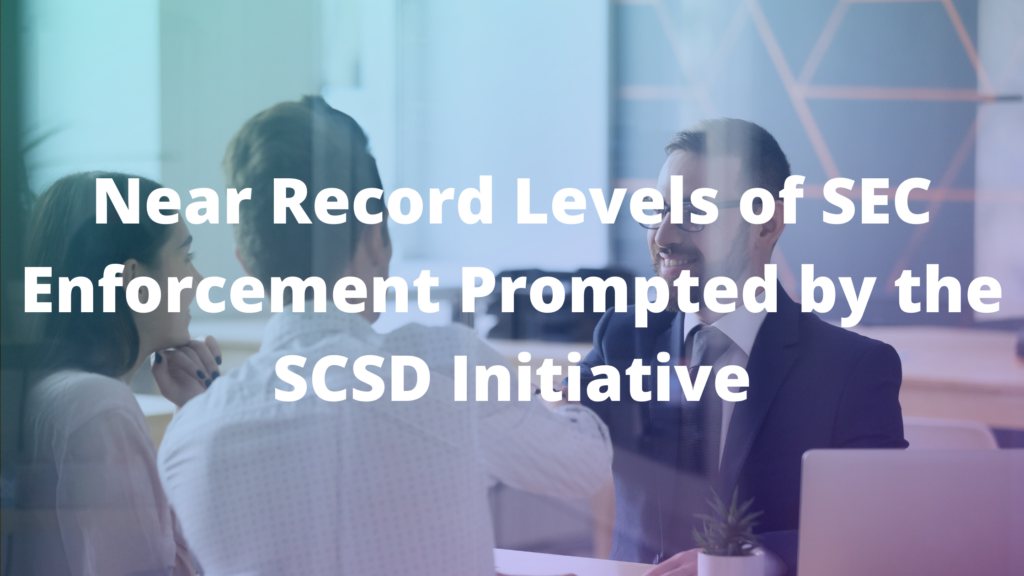Share Class Selection Disclosure (SCSD) is the term used to describe the requirement that investment advisers have to inform their clients when they invest their funds in mutual fund share classes that paid the adviser a fee pursuant to Rule 12b-1 of the Investment Company Act of 1940 when a lower-cost share class for the same fund was available to clients.
The SEC initiated 52 enforcement actions against public companies and subsidiaries in the first half of FY2019. The average half-yearly number of enforcement actions filed by the SEC in the period from 2010 through 2018 was 30. The Securities and Exchange Commission announced, on March 11, 2019, it settled charges against 79 investment advisers who will return more than $125 million to clients, with a substantial majority of the funds going to retail investors.
A 12b-1 fee is paid by a mutual fund, from its assets, to cover its costs for shareholder services, distribution, and marketing expenses. Therefore, when there is a lower-cost share class available that does not charge a 12b-1 fee, it’s in the client’s best interest to invest in the lower-cost share class.
Section 206(2) of the Investment Advisers Act of 1940 (“Advisers Act”) prohibits an investment adviser, directly or indirectly, from engaging “in any transaction, practice, or course of business which operates as a fraud or deceit upon any client or prospective client,” and imposes a fiduciary duty on investment advisers to act for their clients’ benefit, including an affirmative duty of utmost good faith and full disclosure of all material facts. A conflict of interest is a material fact that an investment adviser must disclose to its clients.
Section 207 of the Advisers Act makes it “unlawful for any person willfully to make any untrue statement of a material fact in any registration application or report filed with the Commission . . . or willfully to omit to state in any such application or report any material fact which is required to be stated therein.”
Failure to make this disclosure to clients has prompted many SEC enforcement actions over the past several years. The Share Class Selection Disclosure Initiative (the “SCSD Initiative”), which began in February 2018, is intended to identify and promptly remedy potential widespread violations of this nature. If you believe you have not received full disclosure from your investment adviser on your mutual fund investments, come see the attorneys at Corporate Securities Legal LLP for legal advice that upholds the high standards of the securities industry.
Contact us today for a free consultation: /location/contact/

